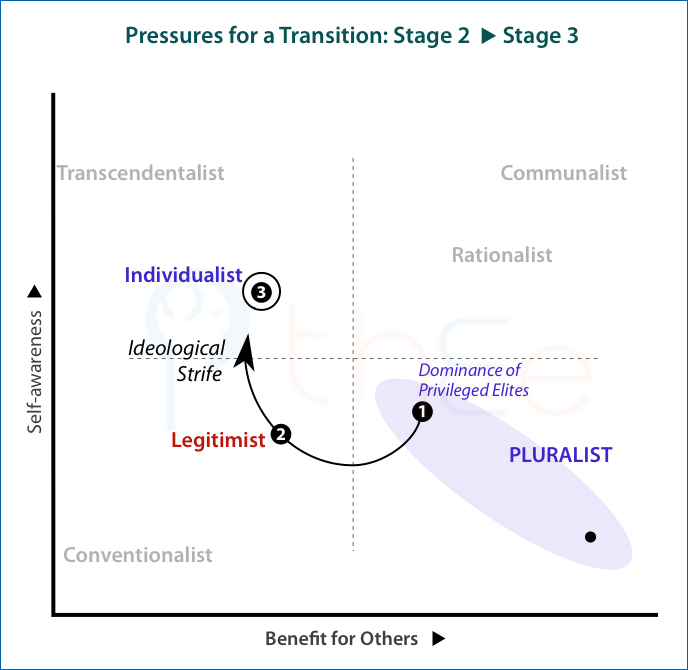The Alternative to Socialism
Ideological Conflict
If the option of plundering their own or other societies is excluded or has run its course, and if socialism has led to miseries that have become intolerable, then the political leadership and the populace must enter a new and sometimes difficult path to prosperity: the path of hard work by each and all—willingly chosen.

Socialist governments and socialist influences on government policies are a distraction from the issue of maturation. They represent the economic conflicts inherent in a society functioning with the .
Any transition from this ethos inherently involves a general principle of intellectual strife and personal struggle. The conflict gets labelled according to your preferred perspective:
- legitimist ethos v individualist ethos
- socialism v capitalism
- traditionalism v modernity
- paternalism v liberalism
- traditional elites v money-based elites
- bureaucracy v libertarianism
- prosperity v stagnation
- work v leisure.
Freedom—but Responsibility and Worse
The essential personal requirement to make an effort is maximized by the provision of freedom for all to pursue their own personal interests and to keep the rewards of effort (or much of it anyway).
This freedom, perhaps appealing at first sight, can be frightening and socially disturbing because it involves:
- responsibility for oneself, family and future
- acceptance of risk
- competition with others
- inequalities of opportunity
- recognition of disparity in abilities
- the need to work hard
- inequality in rewards (i.e. wealth).
So the Question Persists
Is there to be collective responsibility with guaranteed social protection, or must each person fend for themselves?
The ideological battle that counts is not between governments or between political parties as it is so often portrayed. Each person, each family and each citizenry must think this through for themselves.
The conclusion in favour of mature self-reliance still leaves room for community provision of a safety-net. Freedom also turns out to be the basis of ethics, including the exercise of virtues like compassion, helpfulness and benevolence.
![]() Rural villages are not socialist...
Rural villages are not socialist...
- Now: Review the point of transition to the ; or skip that and go direct to Stage-3: the individualist mode.
Originally posted: July 2009; Last updated: 27 Jan 2014
All posted material is part of a scientific project and should be regarded as provisional. Visitors are encouraged to think through the topics and propositions for themselves. Copyright © Warren Kinston 2009-2016.
All Rights Reserved.